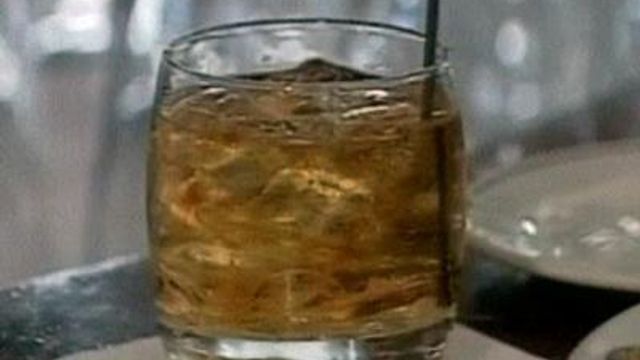Local News
Duke president supports lowering legal drinking age
Richard Brodhead says current laws actually encourage dangerous binge drinking on campus.
Posted — UpdatedDURHAM, N.C. — Duke University President Richard Brodhead is among more than 100 college presidents calling on lawmakers to consider lowing the drinking age from 21 to 18, saying current laws actually encourage dangerous binge drinking on campus.
"We do not simply advocate lowering the drinking age as a solution to a very serious problem," Brodhead said in a statement Tuesday afternoon. Rather, we want to encourage an honest and constructive dialogue among educators, lawmakers, parents and students."
In a statement posted on the Web site of the Amethyst Initiative – the movement that began quietly recruiting college presidents more than a year ago to provoke national debate about the drinking age – Brodhead says current law "pushes drinking into hiding, heightening its risks" and prevents school officials "from addressing drinking with students as an issue of responsible choice."
"This is a law that is routinely evaded," said John McCardell, former president of Middlebury College in Vermont and the one who started Amethyst. "It is a law that the people at whom it is directed believe is unjust and unfair and discriminatory."
Other prominent schools in the group include Syracuse, Tufts, Colgate, Kenyon and Morehouse.
"It should be obvious to anyone that the current system is broken and isn't doing what it should to protect the health, safety and well-being of our children," Brodhead said Tuesday. "And if what we are doing now doesn't work, then we have an obligation to ourselves, and to society, to explore what might."
Mothers Against Drunk Driving, however, says lowering the drinking age would lead to more fatal car crashes.
It accuses the presidents of misrepresenting science and looking for an easy way out of an inconvenient problem. MADD officials are even urging parents to think carefully about the safety of colleges whose presidents have signed on.
"It's very clear the 21-year-old drinking age will not be enforced at those campuses," said Laura Dean-Mooney, national president of MADD.
Craig Lloyd, executive director of MADD's North Carolina chapter, says data shows 25,000 lives have been saved since the drinking age was raised to 21.
Both sides agree alcohol abuse by college students is a huge problem.
Research has found more than 40 percent of college students reported at least one symptom of alcohol abuse or dependence.
One study has estimated more than 500,000 full-time students at four-year colleges suffer injuries each year related in some way to drinking, and about 1,700 die in such accidents.
A recent Associated Press analysis of federal records found that 157 college-age people, 18 to 23, drank themselves to death from 1999 through 2005.
"We don't think just giving up and lowering the age is going to be the solution," Lloyd said.
Moana Jagasia, a Duke University sophomore from Singapore, where the drinking age is lower, said reducing the age in the U.S. could be helpful, however.
"There isn't that much difference in maturity between 21 and 18," she said. "If the age is younger, you're getting exposed to it at a younger age, and you don't freak out when you get to campus."
McCardell said college students will drink no matter what, but do so more dangerously when it's illegal.
The statement the presidents have signed avoids calling explicitly for a younger drinking age. Rather, it seeks "an informed and dispassionate debate" over the issue and the federal highway law that made 21 the de facto national drinking age by denying money to any state that bucks the trend.
But the statement makes clear the signers think the current law isn't working, citing a "culture of dangerous, clandestine binge-drinking," and noting that while adults under 21 can vote and enlist in the military, they "are told they are not mature enough to have a beer." Furthermore, "by choosing to use fake IDs, students make ethical compromises that erode respect for the law."
MADD CEO Chuck Hurley said, nearly all peer-reviewed studies looking at the change showed raising the drinking age reduced drunken-driving deaths. A survey of research from the U.S. and other countries by the Centers for Disease Control and Prevention and others reached the same conclusion.
Duke faced accusations of ignoring the heavy drinking that formed the backdrop of 2006 rape allegations against three lacrosse players. The rape allegations proved to be a hoax, but the alcohol-fueled party was never disputed.
Duke senior Wey Ruepten said university officials should accept the reality that students are going to drink and give them the responsibility that comes with alcohol.
"If you treat students like children, they're going to act like children," he said.
Hurley, of MADD, has a different take on the presidents.
"They're waving the white flag," he said.
Copyright 2024 by WRAL.com and the Associated Press. All rights reserved. This material may not be published, broadcast, rewritten or redistributed.





